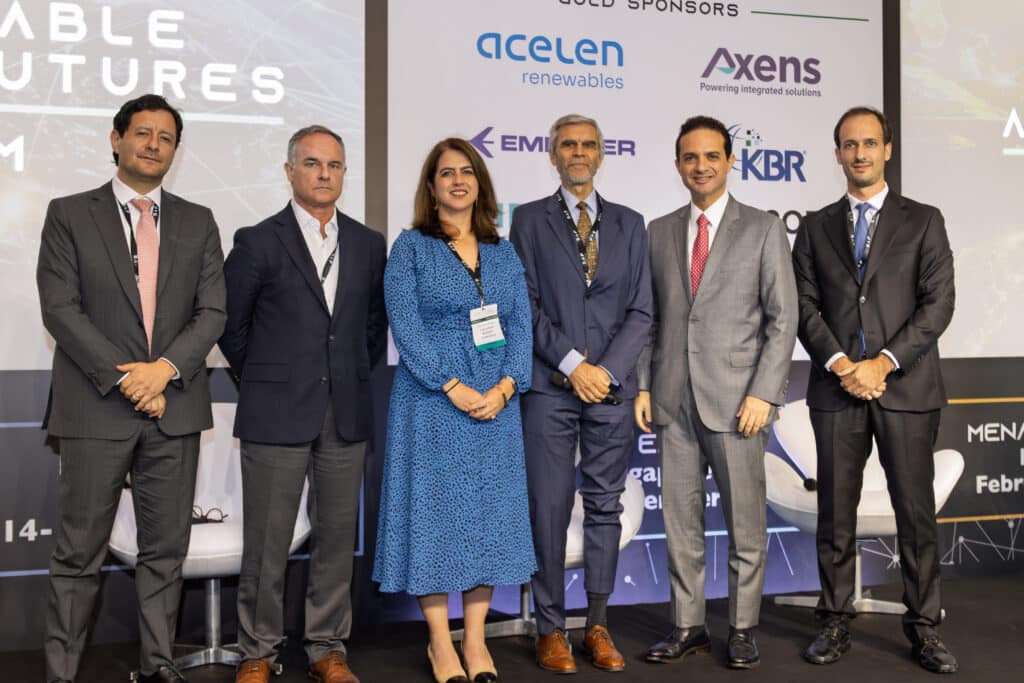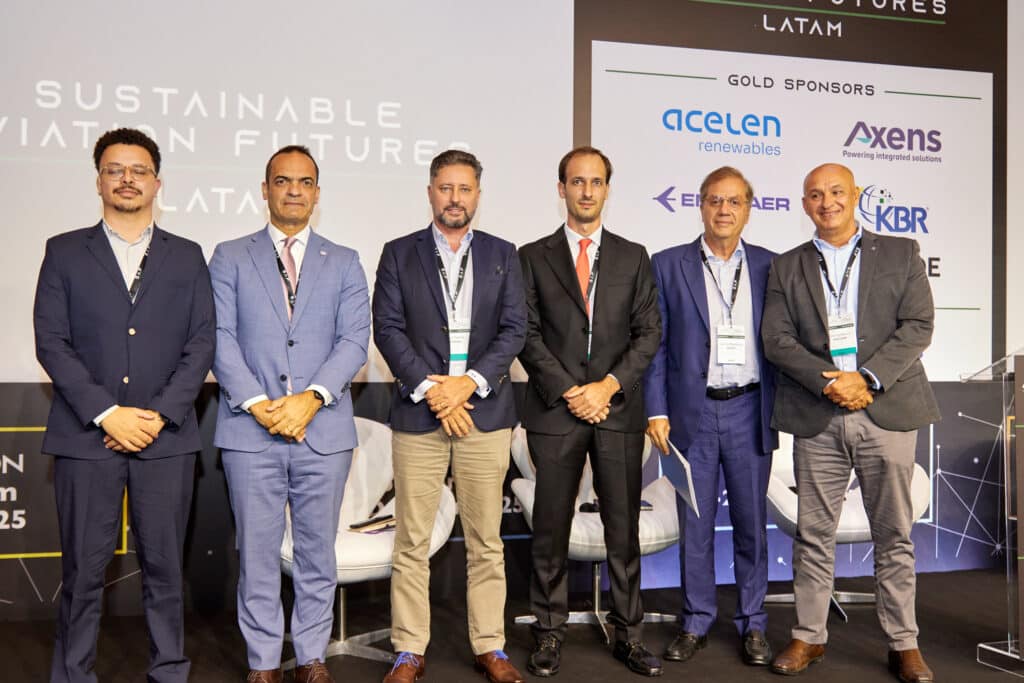
The Latin American Congress on Sustainable Aviation Fuels showcased the latest developments in the regional market; outlined the situation regarding raw materials and production capacities; and discussed how the region could become the global supplier of SAFs.
São Paulo, Brazil, 10 April 2025 (IICA) – The Americas has the potential to become a global leader in supplying sustainable aviation fuels, although to do so, it will need to establish clear rules and to harmonize its sustainability criteria governing the raw materials used, ensuring that processes are certifiable and science-based.
This was the view of experts and entrepreneurs from the sector, participating in a high-level discussion organized by the Inter-American Institute for Cooperation on Agriculture (IICA) at the Latin American Congress on Sustainable Aviation Fuels (SAF) in São Paulo, Brazil.
The meeting, which is considered a key event in positioning Latin America as a strategic player in the decarbonization of the aviation sector, attracted more then 400 participants and 100 presenters, who discussed the future of SAF in the region. It was organized by Sustainable Aviation Futures, a global platform that is driving the expansion of global SAF production and the decarbonization of air transportation.
Agustín Torroba, an IICA international biofuels expert and the Executive Secretary of the Pan American Liquid Biofuels Coalition (CPBIO), stressed the importance of the event in discussing technological pathways, raw materials, processes and certification standards.
Torroba explained that, “We are seeking to serve as the voice of the region regarding the need to develop a single sustainability standard, as well as to position the Americas as the main supplier of raw materials and biofuels that can be industrialized to produce SAF. This will enable the region to become a global hub for producers and exporters of SAF”.
Víctor Castro, representative of the Oil Industry Chamber of the Republic of Argentina, spoke of the need to implement clear regulations, regionally and globally, with a view to eliminating inconsistencies and facilitating business dealings at the global level.
On the other hand, Aida Lorenzo, climate advocate for Sustainable Bioenergy and the Executive Director of Guatemala’s Association of Renewable Fuels, underscored the need to establish a joint roadmap to drive the development of SAFs as an established reality in the production sector and their adoption by airlines in the region.

The Americas are positioning themselves as a potential leader in sustainable aviation fuels, highlighting the need for clear rules and science-based sustainability criteria.
Sustainable raw materials
Álvaro Lorenzo, General Manager of Alcoholes del Uruguay, pointed out the enormous opportunity open to the Americas to become the supplier of both the raw materials and products used in the sustainable aviation fuel industry.
The President of Colombia’s Biofuels Federation, Carolina Rojas, stressed the potential of Colombia and other countries in the region to be suppliers of SAFs.
Rojas pointed out that, “With our abundant supply of sustainable raw materials and our close to four decades of experience in producing liquid biofuels, Colombia meets all the criteria to become a major global player in the SAF supply chain”.
Evandro Gussi, CEO of the Brazilian Sugarcane and Bioenergy Industry Association (UNICA), noted the upsurge in the market demand for SAF and the fact that Latin America is in an exceptional position to lead this movement, producing ethanol from sugar cane and corn, as the basis of one of the most promising technological solutions for SAF production: Alcohol-to-Jet (ATJ).
Gussi said that, “This production can take place without diminishing the food supply, as we do here in Brazil. In the long run, the more energy we generate, the more food we can produce. With almost five decades of experience in producing biofuels, Brazil is prepared to contribute to the decarbonization of air transportation”.
In closing, Torroba remarked that, “The Americas is the region with the greatest potential to sustainably supply land-based raw materials and biofuels for SAF production. However, for this to become a reality, the region must move forward in harmonizing sustainability standards, aligning them with established international criteria and creating an ecosystem for SAF development”.
More information:
Institutional Communication Division.
comunicacion.institucional@iica.int











